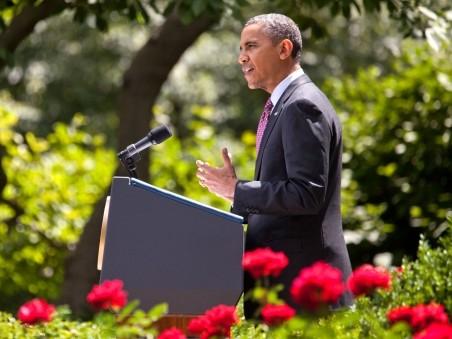In recent years, the tea party movement has been a prominent feature of the American political landscape. The Tea Party played a major role in the 2010 midterm elections that took back the House of Representatives for the GOP, and was a significant force during the 2011 federal budget and debt-ceiling debates.
The Tea Party is associated with a very conservative political persuasion. Members and supporters routinely make clarion calls for smaller government, less spending, and lower taxes. The name evokes nostalgia for 18th century America, admiration for the Founding Fathers, and an Originalist interpretation of the Constitution.
But who, or what, exactly, is the Tea Party? What are its cultural characteristics? Is it a new cultural movement, or a realignment within the Republican Party?
A study, presented at the 106th Annual Meeting of the American Sociological Association on Monday, sought to answer these questions. Titled “Cultures of the Tea Party” and published in the May issue of Contexts, the official journal of the ASA, the study was authored by Andrew J. Perrin, Neal Caren, and Sally Morris of the Department of Sociology at the University of North Carolina at Chapel Hill, and Steven J. Tepper of the Department of Sociology at Vanderbilt University.
The study, which was based on two telephone polls of voters in North Carolina and Tennessee, and interviews and observations at a Party rally in Washington, D.C., found that Americans who are either sympathetic to, or members of, the Tea Party, subscribe notably to four specific cultural dispositions: libertarianism, authoritarianism, ontological insecurity—a fear of societal change, and nativism.
• Libertarianism –The study found that those sympathetic to the Tea Party subscribed to libertarian views more than others, believing that less regulation should be placed on forms of personal expression. According to a poll, 24 percent of Tea Party supporters believed that there should be fewer rules and regulations on Internet content and who is allowed to read or see it, compared to 16 percent of non-Tea Party supporters.
• Authoritarianism – More Tea Party supporters tended to subscribe to authoritarian views than others. As an example, 81 percent of Tea Party supporters in the poll believed that deference to authority is an important value, and that obedience to a parent on the part of a child was more important than personal creativity or taking responsibility for his own actions.
• Ontological insecurity – More than half of those who voiced concern about “changes taking place in American society these days” were Tea Party supporters, while only 21 percent of those who were “somewhat concerned” or not concerned at all were Tea Party supporters.
• Nativism — Those sympathetic to the Tea Party were more likely to possess nativist views, with 18 percent of Tea Party supporters having negative opinions of immigrants, while 12 percent of non-Tea Party supporters held the same views.
The study also analyzed the symbolism and cultural imagery that the Tea Party adopts, such as reverence for the Founding Fathers and the Constitution.
The research highlighted inconsistencies within the groups’ viewpoints. For example most Tea Party affiliates subscribe to an Originalist interpretation of the Constitution, meaning that is correct to interpret the Constitution as the founders intended. A majority also supported a constitutional amendment against flag burning and efforts to overturn the current definition of American citizenship as defined in the 14th Amendment. Anyone born in the United States is a citizen, according to the 14th Amendment.
From these inconsistencies, the authors reasoned that such inconsistencies highlights what many sociologists consider the increasing role of culture in politics.
“The Constitution—and Tea Party more generally— take on heightened symbolic value, coming to represent a ‘way of life’ or a ‘world view’ rather than a specific set of laws or policy positions,” the study concludes.
So, while Tea Party supporters and members for the most part subscribe to the same dispositions that already characterize the rest of the Republican Party, “What’s new about the TPM is its syncretic cultural work melding 21st century discontent to the symbolic memory of 18th century America.”
Study Says Tea Party Members Share Cultural Characteristics
Who, or what, exactly, is the Tea Party? What are its cultural characteristics? Is it a new cultural movement, or a realignment within the Republican Party?
|Updated:



